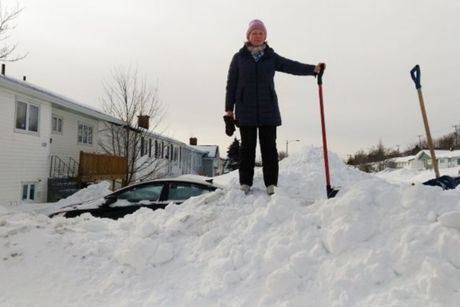
Despite it all, this year brought about inspiring and touching stories that resonated with our readers. We looked at the most popular stories from 2021 and brought them together for us to enjoy again as we end 2021.
Posted December 30, 2021 by Red Cross Talks

Despite it all, this year brought about inspiring and touching stories that resonated with our readers. We looked at the most popular stories from 2021 and brought them together for us to enjoy again as we end 2021.
Posted December 28, 2021 by Global Administrator

The blizzard has finally passed. The ice storm has stopped raging. Your home is snowed in and the power is out, though thankfully your household members are safely inside. For many newcomers, the aftermath of a winter emergency requires a safe and strategic approach, including advanced planning.
Posted December 24, 2021 by Red Cross Talks

Fear, stress and worry are all expected feelings during a crisis. If you’re among the many people who find themselves feeling drained as we enter this holiday season, there are small steps you can take that can help.
Posted December 23, 2021 by Red Cross Talks

When Cristina Austin asked for the Canadian Red Cross’ assistance in January 2020, she had just one question: “What happened to my grandfather?” A first generation Canadian, born to German immigrants who arrived in Montreal in the early 1960s, Cristina was inspired to look into her family history for many reasons.
Posted December 21, 2021 by Red Cross Talks

Human beings are social creatures, so when someone feels disconnected from that, it can really take a toll on their mental wellbeing. This is where the Canadian Red Cross Friendly Calls Program comes in. It helps people to feel that connection and reminds us that we are all in this together.
Posted December 20, 2021 by Global Administrator

Across Canada, winter can take many forms, ranging from wild storms to bone-chilling power outages. While many Canadians are familiar with how to prepare for winter emergencies, newcomers to our country may not be.
Posted December 18, 2021 by Red Cross Talks

Baxter Canada has supported Canadian Red Cross programs for years, helping Canadians when they need it the most, and, despite a global pandemic, has continued to provide support to several programs, including the Mobile Food Bank. Baxter has maintained a steady roster of volunteers during the COVID-19 pandemic when volunteer support was limited.
Posted December 15, 2021 by Red Cross Talks

On November 14, Barb Gagnon saw flood waters come very close to her house just outside of Princeton, British Columbia. She was evacuated to a friend’s house with her dog, Daisy, and it wasn't long before she decided to roll up her sleeves “in order to keep my sanity and keep busy,” she says.
The purpose of this blog, quite simply, is to talk. This blog is an opportunity for Red Cross staff, volunteers, supporters and friends to share stories about what is happening in your community and the important work you are doing. It is a tool that will help keep all of us connected.
Looking for something specific? Try filtering posts by selecting a topic from the list below:
All content copyright © 1999 - 2025 Canadian Red Cross. All rights reserved. Charity Registration Number: 119219814RR0001

